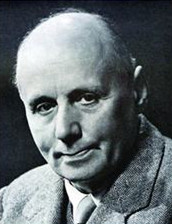Living UWC Mission, 19 Years and Beyond
Issue date:2017-01-11Upon the start of a new year, we are launching a new series to share reflections of faculty members of UWC Changshu China. UWC teachers are not only academic tutors but also gardeners of souls. They set personal examples and plant the seeds of UWC values deep in the minds of their students.
In this article, KokMing Lee, from Malaysia, who is the Head of Mathematics Department, shared his UWC experience with us. As a graduate of UWC Adriatic in Italy, Ming taught mathematics at Mahindra United World College of India and Li Po Chun United World College of Hong Kong. His students acclaimed him as an “Outstanding and Inspiring High School Teacher” from the University of Chicago, “Most Influential Teacher” from MIT, and for “Exceptional Teaching” from Stanford University.

At UWC Adriatic, Duino, 1992 (Kokming, last row at the right)
I have been active in the UWC movement for nineteen years. Two years as a student in the UWC Adriatic and seventeen years as a teacher in three different United World Colleges.
The concept of serving others and bringing positive changes to one's community has been central to my life. This concept can be traced back to my middle school experience in Malaysia. My UWC experience at Adriatic further cemented that passion, widened my exposure to global issues, and reinforced my understanding of commonality among people regardless of ethnicity, culture, religion and nationality.
As a student in Adriatic, I had worked with the Red Cross in Zagreb during the civil war in which Croatia seceded from the former Yugoslavia. Even as a volunteer, I indirectly experienced the horror of war. As a student in Adriatic, I was probably the first Malaysian who visited Albania after the democratic party leader Sali Berisha was elected President. As a visitor in Albania, I observed how the previous regime had left people impoverished, the environment degraded and people struggled with an uncertain future. These experiences highlighted to me the importance of working towards peace and a sustainable future.

With alumni from Mahindra UWC
When I started my first job teaching Economics in the Mahindra UWC of India, I was resolved to cultivate students who could use economic tools to analyze economic and social policies in their communities, use cost-benefit analysis, the concept of externalities and development theories to avoid war and to propel an economy to a sustainable growth path.
I believe in walking the talk. I believe that a genuine way to cultivate passion in my students for a subject or a cause is through observing their teacher demonstrating the same passion. Being a teacher in a UWC, I have the opportunity to positively influence students who are potential leaders in their respective communities. As I got reminded recently, the UWC mission explicitly makes education a force to change the world and being a teacher means that I can live the mission.
When I joined UWC Changshu China, one of the questions that I was struggling with was “How might I contribute to building a UWC culture in this new school?” Life would be easier if there is a starter kit with a huge red button that says “Press here to implant a UWC culture.” Alas, such a technology does not exist.
However, this was exactly the opportunity for staff and students to participate in a UWC experience to partly cultivate a UWC culture. I shared my vision of creating a summer programme that was designed, organized and facilitated by students for non-UWC students to spread the UWC vision and to establish a network of positive change-makers. Student organizers were supported in designing a workshop, in project management, and in facilitation skills.
Although our student organizers signed up for this activity in the middle of October, they successfully promoted intercultural understanding to others in a day-long workshop on 20 February 2016. A similar workshop was held again on 26 November 2016 by a new set of organizers.
With a little support from me, student organizers reflected on the effectiveness of their activities and efficiency of their management in these workshops. These feedbacks were then used to design the week-long Mini UWC in summer. The first Mini UWC organized by the students of Changshu was held in the beginning of August 2016 with participants from various part of China and a participant who came all the way from Germany.
Student organizers had chosen to focus on the challenges of sustainable development and explored the issue from social and environmental perspectives. Participants were provided skill-building workshops so that they can design a project for an issue concerning development. Our student organizers with the support from alumni and peers from other United World Colleges helped participants to initiate ten different projects to address developmental issues. At the time of writing, one of these projects is still operational.
In the process of managing these projects, student organizers took personal initiative, engaged in measured risks in their activities, exercised self-discipline and responsibility, and embraced personal challenges in various tasks. Student organizers were actively using education as a force to engage others to build a sustainable future. Student leaders and I are now currently training and guiding a new set of organizers in organizing the next Mini UWC in Changshu.

Mini UWC
On top of that, I helped students to organize the weekly Global Issues Forum. Student organizers are encouraged to investigate different global issues related to peace and sustainable development. Among these were “Is waste a necessary product of development?”, “The history of Taiwan”, “Minorities in China”, “Global Warming”, “Boka Haram in Nigeria”, “Humanitarian Crisis in Venezuela”, and “Genetic Modified Food.”
I hope that by talking and engaging in global issues, students will be exposed to the many challenges that are facing both humanity and the environment. The debate that often follows a presentation is important in bringing out the different perspectives of an issue. Students should be concerned if an issue appears to have a clear black and white dichotomy. In fact, UWC students should always consider actively the different shades of grey often associated with an issue. Only then can they understand an issue better and have better chance of designing a comprehensive solution to the issue. I like to see Global Issues Forum not only as a place for exposure and a point of information but as the flowerbed for ideas to inspire positive changes in the world.

With colleagues in the Math dept.
As the subject teacher of mathematics, I hope that every student who walks into a mathematics classroom will learn to observe patterns, to think, to wonder, to ask new mathematical questions, to understand textbook theorems beyond mere application and calculation, and to be able to communicate mathematics effectively to various audience. Part of my focus is to prepare students who are able to make sense of statistics and formulae.
In my class, I hope my students will leave with a better understanding of these questions “To what extent can statistics inform our decision?” and “To what extent functions are useful in modeling?” As numerical literates, students should realize that statistics can be employed inappropriately to sway opinions and probability plays a big role in medical decisions and insurance premiums.
This sounds like lofty goals for a high school mathematical programme but this is the challenge that I am willing to take to prepare the next generation of numerically literates.










